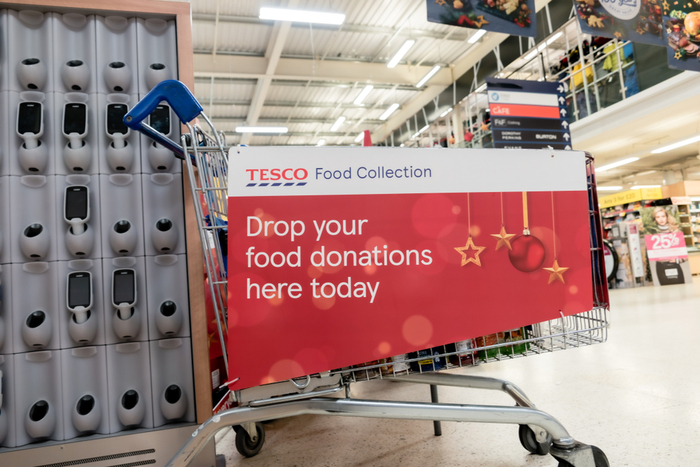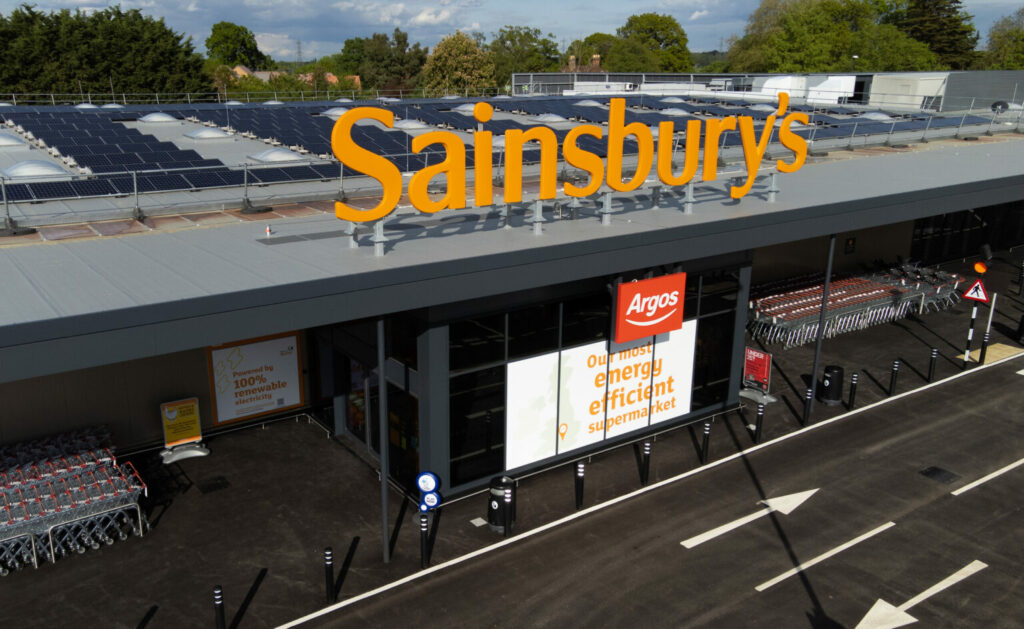Between April 1 last year and March 31 this year, food bank charity The Trussell Trust distributed 1.9 million three-day emergency food supplies to people in crisis, marking an 18 per cent increase on the previous year. And that full year period only factored in the early stages of the pandemic-induced lockdown.
Meanwhile, the Child Poverty Action Group revealed last month that the Covid-19 pandemic has left 80 per cent of low-income families in a worse financial position than before the crisis.
To make matters worse, the Institute for Fiscal Studies found that grocery prices rose by 2.4 per cent during the first month of lockdown, while the ONS suggested that the average price of all food and household items had fallen back to normal by early July.

According to the House of Commons Library, there are over 2000 food banks in the UK, of which 1200 are run by The Trussell Trust. A food bank refers to organisations providing emergency food provision to those struggling to make ends meet, normally in the form of a parcel.
Some of the UK’s biggest supermarkets have food bank partnerships a part of their corporate responsibility – with most implemented well before the pandemic even struck.
Big 4 leader Tesco has been working in partnership with The Trussell Trust since 2012. In April, at the height of the lockdown, it said it provide a top up donation of £15 million of food over a 12-week period as part of its annual Tesco Food Collection.

Sainsbury’s has also expanded its food donation scheme, most recently its partnership with food waste charity FareShare went digital. In late August, the grocery giant said customers can make an online donation to FareShare as part of their regular shop.
Marks & Spencer said it donates surplus food to over 950 charities and organisations – which includes 60 Trussell Trust food banks.
Meanwhile, Lidl donates to food banks only via its food distribution programme Feed it Back, which involves the donation of edible surplus.
Fellow German discounter Aldi takes a similar stance by donating over two million meals in 2018 via its food surplus redistribution partners.
Retail expert Nelson Blackley argued that it’s not a surprise that such a long list of major UK supermarkets and food suppliers have quickly signed up for taskforce recently set up my football star Marcus Rashford.
“Major grocers signing up to Marcus Rashford’s taskforce is a positive step”
“His profile, as one of the country’s best sportsmen, both in the mainstream media and social media is huge,” he told Retail Gazette.
“As a campaign seeking to address such a huge and growing national social and healthcare problem, no relevant food or grocery brand would choose not to actively support or be closely involved with it.”
Viktoria de Bourbon de Palme, food transformation lead at the World Benchmarking Alliance, said the grocers’ initiatives shouldn’t be viewed as tokenistic. She argued it demonstrates that retailers understand the need for long term commitment and that “they see a role for themselves in the solution”.
“It is a step in the right direction,” she said.
“This problem cannot be solved by increased government spending alone, but it also requires a change of attitude from the retail sector.
“Retailers are well placed to drive change, they often have their own brands, as well as an influence on the processors whose products they sell.”
On August 30, Child Poverty Action Group and the Church of England called on the UK Government to extend free meals to all families who are in receipt of universal credit or working tax credit.
The following week, Rashford set his sights on ending child food poverty across the UK with a poverty taskforce he formed with brands including Aldi, Tesco, Deliveroo and Kellogg’s.
The taskforce urges the government to expand free school meals to every child from a household on Universal Credit, extend holiday provision to support all children on free school meals, and increase the value of the Healthy Start vouchers scheme to £4.25 per week from £3.10.
It has since seen some of the UK’s largest grocers sign up in an effort to pledge to hand over their social media channels and share stories of children affected by food poverty over a six-week period, while also calling on MPs to implement proposals from the National Food Strategy.
“Major supermarkets signing up to Marcus Rashford’s taskforce is a really positive step in the fight against food poverty,” said Jason Kay, commercial officer at software company IMS Evolve.

“There is no doubt that supermarkets should be commended for their work with the new taskforce.
“However, they also have the opportunity to leverage proven digital technologies, and their influence over the supply chain, to encourage its adoption from the farm to the shelf.
“These kinds of concerted efforts across the industry could be truly transformative in our progress towards eliminating food poverty, both in the UK and worldwide.”
Meanwhile, Blackley said the food poverty challenge has been exacerbated by the Covid-19 pandemic, with hundreds of thousands of jobs already being lost and many more to inevitably be scrapped as the government’s furlough scheme comes to an end.
“The food poverty challenge has been exacerbated by the Covid-19 pandemic”
“It’s also likely to get worse over the coming months with a possible no deal Brexit in January,” he added.
“Although recent figures show some retail prices are falling, these are almost all non-foods. Fresh food prices are increasing and the key ambient ‘store cupboard products’ for examples pasta, cereals, rice, tinned tomatoes and beans, are currently increasing at over twice the inflation rate.”
Kay said that while such movements and donations to food banks are important, “a key approach of eradicating food poverty is to slash the volumes of food that supermarkets waste each day”.
“Last year alone, food retailers produced a huge 26,000 tonnes of food and drink waste,” he added.
Callum Saunders, head of planning at brand activation agency Zeal Creative, argued that in previous years, the onus was very much on supermarkets: piles of food past its use-by date thrown out and piled high in bins. But the last couple of years has seen supermarkets improve their sustainability.
“The issue has shifted and become increasingly political,” he explained.
“Certain commentators argue that government decisions are directly responsible for an increase in people needing to use food banks.
“Marcus Rashford’s passionate campaign this summer highlighted an increasing need to safeguard food for impoverished schoolchildren.
“At a time when supermarkets and brands are increasingly the conduit for keeping the nation fed, there’s an argument to say that retail and grocery brands are the ones getting it right.”
Although food waste and food banks are no longer as intertwined as they previously were, it arguably remains a retailer’s obligation to try and reduce unsustainable levels of food waste. Conversely, it is also a government’s responsibility to ensure that its most vulnerable are fed – which is why the taskforce that has intertwined both the retail sector and government efforts, has proved major since its launch.
Whereas surplus food and overproduction in the food system are different issues, arguing that one can be a solution for another is not necessarily addressing the reasons why people need to come to food banks in the first place.
Click here to sign up to Retail Gazette’s free daily email newsletter

















